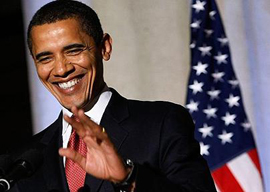
April 15, 2011

Are Democrats, after the “shellacking” of 2010, going to go home and tell their constituents they voted to cut Medicaid benefits?
Are they going to tell the old folks of the Greatest Generation and the Silent Generation and the retiring baby boomers that Medicare in the future will not be as generous as it has been in the past, that we are going to have to start rationing their health care?
The new Republican governors—Scott Walker in Wisconsin, John Kasich in Ohio, Chris Christie in New Jersey, Tom Corbett in Pennsylvania—all have resisted raising taxes, as has Andrew Cuomo, Democrat of New York, who enjoys remarkably high poll numbers for the times we live in.
The praise these governors are receiving, even when embattled, has also steeled the spine of congressional Republicans against any tax increase.
But if Democrats are not going to do even minor surgery on Medicare and Medicaid and Republicans are not going to raise taxes, there is no hope of big budget deal to cut a deficit now running at 11 percent of gross domestic product.
And that raises another question.
How long can the Federal Reserve continue financing these deficits?
China, choking on U.S. debt, is reportedly beginning to divest itself of U.S. bonds. Japan will need to sell U.S. bonds to get hard currency to repair the damage from the earthquake and tsunami. And the Fed is about to end its QE2 monthly purchases of $100 billion in U.S. bonds.
Where is the Fed going to borrow the $125 billion a month to finance this year’s deficit of $1.65 trillion, and another of comparable size in 2012?
Bill Gross’ Pimco, the world’s largest bond fund, has sold all his U.S. bonds and begun to short U.S. debt. Pimco is betting that the value of U.S. Treasury bonds will begin to fall.
We may be about to enter a maelstrom.
No big budget deal is brokered. The deficit endures, and another looms in 2012. To finance them, the Fed borrows at the rate of $30 billion a week wherever it can.
But as countries begin to choke on U.S. debt, the market starts to dry up. To attract investors, the Fed must raise interest rates, which sends bond prices sinking and forces interest rates up across the economy.
With interest rates rising, gas prices rising and inflation rising, the squeeze is on, and there is talk of a double-dip recession.
And if that happens, Obama is toast. But, then, so are we.